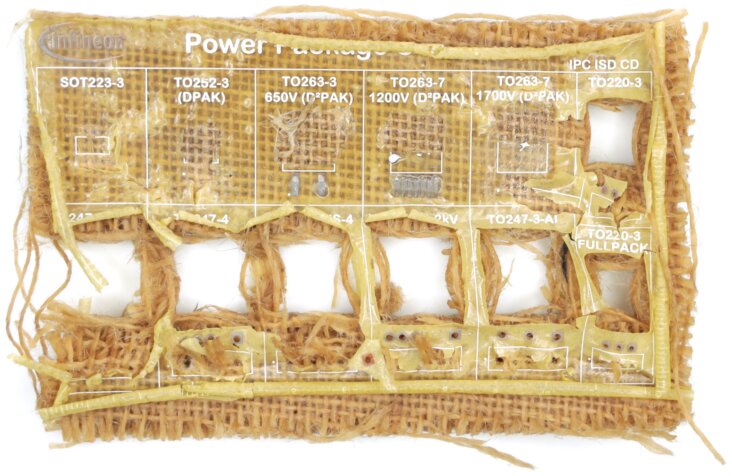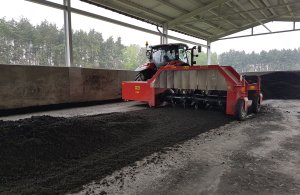Infineon uses recyclable PCBs from Jiva Materials to minimize electronic waste and carbon footprint of demo and evaluation boards (Credit: infineon.com)
British start-up Jiva Materials has developed Soluboard, a recyclable and biodegradable printed circuit board (PCB) substrate based on natural fibers and a halogen-free polymer that leaves a much smaller carbon footprint than the alternative glass-based fibers. The multilayer bio-composite structure of Soluboard is said to meet the mechanical and electrical requirements of most sectors within the electronics industry. The organic structure is enclosed in a non-toxic polymer that dissolves when immersed in hot water, leaving only compostable organic material. This not only eliminates PCB waste, but also allows the electronic components soldered to the board to be recovered and recycled. “Adopting a water-based recycling process could lead to higher yields in the recovery of valuable metals,” said Jonathan Swanston, CEO and co-founder of Jiva Materials. “In addition, replacing FR-4 PCB materials with Soluboard would result in a 60 percent reduction in carbon emissions – more specifically, 10.5 kg of carbon and 620 g of plastic can be saved per square meter of PCB.”
Jiva Soluboard - Circular Stories










